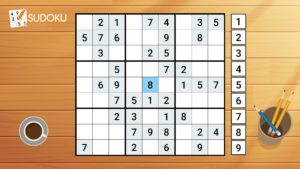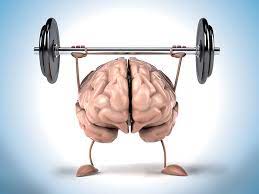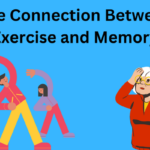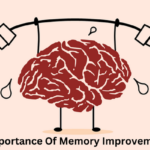Cognitive Stimulation Activities: A Guide to Boost Your Brain Power

Introduction
As we age, our cognitive abilities can start to decline, which can impact our memory, focus, and ability to learn new information. However, there are many cognitive stimulation activities that can help boost brain power and keep our minds sharp. In this guide, we’ll explore some of the best activities to incorporate into your daily routine for optimal brain health.
Definition of Cognitive Stimulation Activities
Cognitive stimulation activities are exercises or activities that are designed to challenge the brain and help improve or maintain its function. These activities can include things like playing brain games, doing puzzles, learning a new skill, or engaging in a new hobby. Cognitive stimulation activities can range from simple and easy, like completing a crossword puzzle, to more complex and challenging, like learning a new language. The goal of these activities is to engage the brain and challenge it to work in new and different ways, thereby helping to maintain or improve its function.
Importance of Cognitive Stimulation
Cognitive stimulation is important because it helps maintain and improve brain function, particularly as we age. Regular participation in cognitive stimulation activities has been shown to increase brain plasticity and neurogenesis, which are important for maintaining cognitive function and memory. Additionally, cognitive stimulation can help improve memory, concentration, and problem-solving skills.
Participating in cognitive stimulation activities can also decrease the risk of developing cognitive decline or dementia. Studies have shown that regular engagement in these activities can help slow down the progression of cognitive decline and improve brain function in individuals with mild to moderate dementia.
Overall, cognitive stimulation activities play a crucial role in maintaining and improving brain health, and are important for keeping the mind sharp and functional as we age. Check out Meditation for Memory here.
Article Goals
The purpose of this article is to provide a comprehensive overview of cognitive stimulation activities and their benefits. The article will cover the different types of cognitive stimulation activities, the recommended frequency for participating in these activities, and tips for incorporating them into your daily routine.
The article will also provide information on cognitive stimulation activities for all ages, including children and adults. It will highlight the importance of age-appropriate and safe activities, and provide tips for choosing activities that are safe and appropriate for your individual needs.
In addition, the article will address frequently asked questions about cognitive stimulation activities, such as how often you should participate in these activities and what to do if you don’t have time for them. The article will also provide a conclusion, summarizing the key points covered and offering final thoughts and recommendations for incorporating cognitive stimulation into your daily routine.
Overall, the purpose of this article is to provide a comprehensive resource for individuals who are interested in boosting their brain power and maintaining healthy brain function through cognitive stimulation activities.
What are Cognitive Stimulation Activities?

Cognitive stimulation activities are exercises or activities that are designed to challenge the brain and help improve or maintain its function. These activities can include things like playing brain games, doing puzzles, learning a new skill, or engaging in a new hobby. Cognitive stimulation activities can range from simple and easy, like completing a crossword puzzle, to more complex and challenging, like learning a new language. The goal of these activities is to engage the brain and challenge it to work in new and different ways, thereby helping to maintain or improve its function.
Examples of cognitive stimulation activities include:
- Doing crossword puzzles or sudoku
- Learning a new language or instrument
- Playing brain games, such as memory games or logic puzzles
- Engaging in conversation or debate
- Reading, writing, or storytelling
- Trying new hobbies, such as painting or photography
- Doing physical exercise, which can help improve brain function and memory
It is important to find activities that challenge the brain in new and different ways, as this will provide the greatest benefit for brain function and health.
Types of Cognitive Stimulation Activities
There are several types of cognitive stimulation activities, each designed to challenge the brain in different ways. Here are some of the most common types of :
- Memory exercises: These activities are designed to challenge the brain’s memory function, such as memory games, memorization techniques, and recall exercises.
- Reasoning and problem-solving activities: These activities challenge the brain’s ability to reason and solve problems, such as crossword puzzles, logic games, and brain teasers.
- Visual and spatial activities: These activities challenge the brain’s ability to process visual information and manipulate objects in space, such as jigsaw puzzles, mazes, and spatial awareness games.
- Language and verbal activities: These activities challenge the brain’s ability to process language and communicate effectively, such as learning a new language, engaging in conversation or debate, or storytelling.
- Creative activities: These activities challenge the brain’s ability to think creatively, such as drawing, painting, writing, or playing music.
- Physical and sensory activities: These activities challenge the brain’s ability to process sensory information, such as touch, taste, and smell, as well as physical coordination and movement, such as exercise, dance, and physical games.
It is important to find activities that challenge the brain in new and different ways, as this will provide the greatest benefit for brain function and health. Participating in a variety of cognitive stimulation activities is also recommended, as this will help to challenge the brain in multiple ways and provide a well-rounded stimulation experience.
Benefits of Cognitive Stimulation Activities

Cognitive stimulation activities have numerous benefits for the brain and overall health. Here are some of the most notable benefits:
- Improved memory: Engaging in memory exercises and other cognitive stimulation activities can help improve memory function and reduce the risk of memory decline.
- Better focus and attention: Cognitive stimulation activities can help improve focus and attention, making it easier to concentrate and complete tasks.
- Increased creativity: Engaging in creative activities, such as drawing or writing, can help boost creativity and inspire new ideas.
- Enhanced problem-solving skills: Reasoning and problem-solving activities can help improve the brain’s ability to think critically and solve problems.
- Increased processing speed: Regular participation in cognitive stimulation activities can help increase processing speed, making it easier to complete tasks quickly and efficiently.
- Reduced stress and anxiety: Engaging in cognitive stimulation activities can help reduce stress and anxiety, as well as improve mood and overall well-being.
- Improved mental agility: Regular participation in cognitive stimulation activities can help keep the brain sharp and improve mental agility, making it easier to adapt to new challenges and think on your feet.
- Lower risk of cognitive decline: By engaging in cognitive stimulation activities, individuals can reduce their risk of cognitive decline, including conditions such as dementia and Alzheimer’s.
In conclusion, cognitive stimulation activities offer numerous benefits for the brain and overall health. Participating in these activities regularly can help improve memory, focus, creativity, problem-solving skills, processing speed, and overall mental agility, while reducing the risk of cognitive decline.
How Often Should You Participate in Cognitive Stimulation Activities?
There is no set frequency for participating in cognitive stimulation activities, as the optimal frequency will vary based on individual needs and goals. However, most experts recommend participating in cognitive stimulation activities on a regular basis in order to see the maximum benefits.
For individuals looking to improve their overall brain function and reduce the risk of cognitive decline, participating in cognitive stimulation activities at least 2-3 times per week is recommended. This can be done in the form of short, focused sessions of 20-30 minutes, or in longer sessions of 1-2 hours.
It is important to find a routine that works for you, and to make cognitive stimulation activities a regular part of your life. Incorporating these activities into your daily routine, such as during a morning or evening routine, can help ensure consistent participation and maximum benefits.
Additionally, it is important to challenge the brain in new and different ways, and to try different types of cognitive stimulation activities in order to provide the brain with a well-rounded stimulation experience. This can include participating in memory exercises one day, reasoning and problem-solving activities the next day, and creative activities on the third day.
In conclusion, the optimal frequency for participating in cognitive stimulation activities will vary based on individual needs and goals, but most experts recommend participating in these activities 2-3 times per week for maximum benefits.
Tips for Incorporating Cognitive Stimulation into Your Daily Routine

Incorporating cognitive stimulation activities into your daily routine can help ensure consistent participation and maximum benefits. Here are some tips for making cognitive stimulation a regular part of your life:
- Make a schedule: Create a schedule for incorporating cognitive stimulation activities into your daily routine, and stick to it. This can include setting aside specific times for memory exercises, reasoning and problem-solving activities, and creative activities.
- Use technology: There are many apps and websites that offer brain training and cognitive stimulation activities, which can be convenient and accessible. Consider using these resources as a part of your daily routine.
- Make it social: Invite friends or family members to participate in cognitive stimulation activities with you, which can make the experience more enjoyable and social.
- Mix it up: Try different types of cognitive stimulation activities, and mix it up to provide the brain with a well-rounded stimulation experience. This can include memory exercises one day, reasoning and problem-solving activities the next day, and creative activities the following day.
- Turn off distractions: When participating in cognitive stimulation activities, turn off distractions such as phones and televisions, in order to maximize focus and attention.
- Find activities you enjoy: Find cognitive stimulation activities that you enjoy and look forward to, as this will increase the likelihood of consistent participation.
- Reward yourself: Reward yourself after participating in cognitive stimulation activities, as this can provide motivation and encourage continued participation.
In conclusion, incorporating cognitive stimulation activities into your daily routine can be done with some planning and effort. By using technology, making it social, mixing it up, turning off distractions, finding activities you enjoy, and rewarding yourself, you can ensure that these activities become a regular and beneficial part of your life.
Cognitive Stimulation Activities for All Ages
Children

Fun and Engaging Activities for Children
Cognitive stimulation activities are not just for adults, they can also be great for children! Here are some fun and engaging activities for children that can help boost their brain power:
- Memory games: Games such as Simon Says, or memory games that involve matching cards can help improve a child’s memory and cognitive skills.
- Problem-solving puzzles: Puzzles such as Sudoku, jigsaw puzzles, and crossword puzzles can help children improve their reasoning and problem-solving skills.
- Creative activities: Creative activities such as drawing, painting, and sculpting can help children improve their imagination and enhance their visual and spatial skills.
- Word games: Word games such as Scrabble, Boggle, and crossword puzzles can help children improve their vocabulary and language skills.
- Numbers games: Games such as Sudoku, math games, and counting games can help children improve their numerical skills and understanding of mathematical concepts.
- Outdoor games: Outdoor games such as hide and seek, capture the flag, and tag can help children improve their coordination and physical dexterity.
- Reading: Encourage children to read books, magazines, and newspapers, as this can help improve their language skills and understanding of the world around them.
- Cooking and baking: Cooking and baking with children can help improve their organizational skills, as well as their ability to follow instructions and measure ingredients.
- Crafts: Craft activities such as knitting, crocheting, and beading can help children improve their fine motor skills and hand-eye coordination.
In conclusion, there are many fun and engaging activities for children that can help boost their brain power. From memory games and problem-solving puzzles, to outdoor games and cooking, there are many ways for children to participate in cognitive stimulation activities and improve their cognitive skills.
Importance of Cognitive Stimulation for Children
Cognitive stimulation is important for children as it helps them develop and improve various cognitive skills. These skills are essential for success in school and later in life. Here are some of the benefits of cognitive stimulation activities for children:
- Improved memory: Cognitive stimulation activities such as memory games and puzzles can help improve a child’s memory, helping them retain information and recall it more easily.
- Enhanced reasoning skills: Puzzles, word games, and other cognitive stimulation activities can help children develop their reasoning and problem-solving skills, which are essential for success in school and later in life.
- Better language skills: Activities such as reading, word games, and storytelling can help children improve their language skills, including their vocabulary and comprehension.
- Improved numerical skills: Games and activities that involve numbers and mathematical concepts can help children improve their understanding of math and develop their numerical skills.
- Improved fine motor skills: Activities such as crafts, cooking, and baking can help children improve their fine motor skills and hand-eye coordination.
- Better coordination: Outdoor games and physical activities can help children improve their coordination and physical dexterity, which is important for overall health and well-being.
- Enhanced creativity: Creative activities such as drawing, painting, and sculpting can help children develop their imagination and creativity, leading to a more fulfilling life.
- Improved attention and focus: Cognitive stimulation activities can help children develop their attention and focus, which is essential for success in school and later in life.
In conclusion, cognitive stimulation activities are important for children as they help develop and improve essential cognitive skills. Whether it’s through memory games, puzzles, or creative activities, there are many ways for children to participate in cognitive stimulation and reap its benefits.
Adults

Challenging Activities for Adults
Adults can also benefit from cognitive stimulation activities and can participate in more challenging activities to keep their minds sharp. Here are some activities that can provide a mental workout for adults:
- Crossword puzzles and Sudoku: These popular games challenge the brain and improve memory and reasoning skills.
- Word games: Word games such as Scrabble and Boggle can help improve vocabulary and spelling, while also providing a fun mental workout.
- Strategy games: Games such as chess and checkers can help improve problem-solving skills and critical thinking, making them great for a mental workout.
- Brain teasers: Riddles, brainteasers, and puzzles can challenge the mind and improve problem-solving skills and logical reasoning.
- Learning a new language: Learning a new language can challenge the brain and improve memory, as well as provide a new perspective on the world.
- Reading: Reading challenging books, such as classics or non-fiction works, can help improve comprehension and critical thinking skills.
- Cooking: Trying new recipes and cooking techniques can challenge the brain and improve memory, as well as provide a sense of accomplishment.
- Traveling: Exploring new places and cultures can challenge the mind and improve memory, while also providing a new perspective on the world.
In conclusion, adults can also participate in cognitive stimulation activities to keep their minds sharp. Whether it’s through strategy games, reading, or traveling, there are many fun and challenging activities that can provide a mental workout and enhance cognitive function.
How Cognitive Stimulation Can Help Maintain Brain Health in Adulthood
Cognitive stimulation activities can help maintain brain health in adulthood and even slow down the decline of cognitive function as we age. Here are some ways cognitive stimulation can help:
- Improved memory: Regular participation in memory games and puzzles can help improve and maintain memory, especially as we age.
- Reduced risk of dementia and Alzheimer’s disease: Studies have shown that cognitive stimulation activities can reduce the risk of developing dementia and Alzheimer’s disease, especially in older adults.
- Improved brain plasticity: Cognitive stimulation activities can help improve brain plasticity, allowing the brain to adapt and change more easily.
- Enhanced cognitive reserve: Cognitive stimulation activities can help increase cognitive reserve, which is the brain’s ability to compensate for damage or decline in brain function.
- Better executive function: Executive function, which includes tasks such as planning and decision making, can be improved through cognitive stimulation activities.
- Reduced stress and anxiety: Engaging in cognitive stimulation activities can help reduce stress and anxiety, leading to better overall mental health.
- Improved mental agility: Regular participation in cognitive stimulation activities can help maintain mental agility, keeping the mind sharp and alert.
In conclusion, cognitive stimulation activities can help maintain brain health in adulthood and even slow down the decline of cognitive function as we age. By participating in activities such as memory games, strategy games, and reading, adults can improve their cognitive function and maintain a healthy brain well into old age.
Risks Associated with Cognitive Stimulation Activities
While cognitive stimulation activities can have many benefits, there are some risks associated with them as well. Here are some risks to be aware of:
- Overstimulation: Participating in too many cognitive stimulation activities or engaging in them for extended periods of time can lead to overstimulation and burnout.
- Addiction: Some cognitive stimulation activities, such as video games or online puzzles, can be addictive and lead to excessive screen time, which can negatively impact mental health.
- Isolation: Participating in cognitive stimulation activities solely and without social interaction can lead to feelings of isolation and loneliness.
- Decreased physical activity: Spending too much time engaged in cognitive stimulation activities can lead to decreased physical activity, which is important for overall health and well-being.
- Dependence: Relying too heavily on cognitive stimulation activities for mental stimulation can lead to dependence and a decreased ability to engage in other activities or think critically on one’s own.
In conclusion, while cognitive stimulation activities can be beneficial for mental health, it is important to participate in them in moderation and not let them interfere with other aspects of life. Additionally, it is important to engage in social activities and physical exercise in addition to cognitive stimulation activities to maintain a well-rounded and healthy lifestyle.
Importance of Age-Appropriate and Safe Activities
When it comes to cognitive stimulation activities, it is important to choose age-appropriate and safe activities to ensure the best outcomes. Here are some reasons why this is important:
- Age-appropriate activities: Different age groups have different cognitive abilities and needs. For example, young children may benefit from simple activities such as matching games, while older adults may benefit from more complex activities such as strategy games.
- Safety concerns: Some cognitive stimulation activities, such as online puzzles or memory games, may contain inappropriate content or lead to excessive screen time, which can be harmful to children. It is important to choose activities that are safe and appropriate for the age group in question.
- Optimal engagement: Age-appropriate activities are more likely to be engaging and enjoyable, leading to better outcomes and increased participation.
- Better outcomes: By choosing age-appropriate activities, individuals can ensure that they are participating in activities that are best suited to their cognitive abilities and needs, leading to better outcomes such as improved memory and cognitive function.
In conclusion, it is important to choose age-appropriate and safe activities when it comes to cognitive stimulation. By doing so, individuals of all ages can ensure that they are participating in activities that are best suited to their cognitive abilities and needs, leading to better outcomes and improved mental health.
Frequently Asked Questions
Q: How often should I participate in cognitive stimulation activities?
A: It’s recommended to participate in cognitive stimulation activities at least 3-4 times a week to see the best results.
Q: What if I don’t have time for cognitive stimulation activities?
A: You don’t need a lot of time to participate in these activities. Just 10-15 minutes a day can make a big difference. You can also try to incorporate cognitive stimulation activities into your daily routine, such as doing crossword puzzles during your lunch break or taking up a new hobby in the evening.
Q: Are there any risks associated with cognitive stimulation activities?
A: There are no risks associated with cognitive stimulation activities, as long as they are age-appropriate and within your abilities.
Conclusion
In conclusion, cognitive stimulation activities are a great way to boost brain power and maintain cognitive health. By participating in activities that challenge the brain and stimulate cognitive function, individuals can improve memory, focus, and overall mental health. With a variety of activities available, including puzzles, strategy games, memory games, and more, there is something for everyone.
Whether you are a young child or an older adult, incorporating cognitive stimulation activities into your daily routine can have numerous benefits. However, it is important to participate in these activities in moderation, choose age-appropriate and safe activities, and engage in physical exercise and social activities as well. By following these guidelines, individuals can ensure that they are maximizing the benefits of cognitive stimulation activities and maintaining overall well-being.



